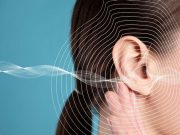Tag: Migraine
>30 Percent With Migraine Experience Migraine-Related Stigma Often
Increased migraine-related stigma linked to increased disease burden across monthly headache day categories
Eye Blood Flow Could Be Marker for Migraine
Findings seen for migraine patients with or without aura symptoms
Motor Vehicle Crashes Increased in Year After Incident Migraine Among Seniors
Prevalent migraine not associated with MVCs in subsequent two years but is linked to small reductions in driving days
Study Compares Effectiveness of Migraine Preventive Drugs
Simvastatin, CGRPabs, amitriptyline more likely to achieve a clinically significant reduction in triptan use
Triptans, Ergots, Antiemetics Most Effective Meds for Migraine
Individual medications with the highest odds ratios were eletriptan, zolmitriptan, and sumatriptan
Ubrogepant Beneficial for Treating Migraine During the Prodrome
Absence of moderate or severe headache reported in 46 and 29 percent of prodrome events that had been treated with ubrogepant, placebo
COVID-19 Infection, Vaccination Have Little Effect on Migraine Worsening
Increased concern about migraine worsening was risk factor for perceived migraine worsening
Growing Pains May Be Precursor to Migraine
Significantly more children and adolescents with growing pains had headaches fulfilling criteria of migraine without aura, probable migraine
No Change Seen in Frequency of Recurrent Vertigo Attacks Over Time
Attack frequency did not change over three years for people with benign recurrent vertigo, Meniere disease, or vestibular migraine
Gadolinium-Enhanced MRI Can Differentiate Meniere From Vestibular Migraine
Carsickness, decrease in asymmetric hearing loss, increase in SSPVI of the ipsilateral ear may also serve as diagnostic predictors of vestibular migraine














